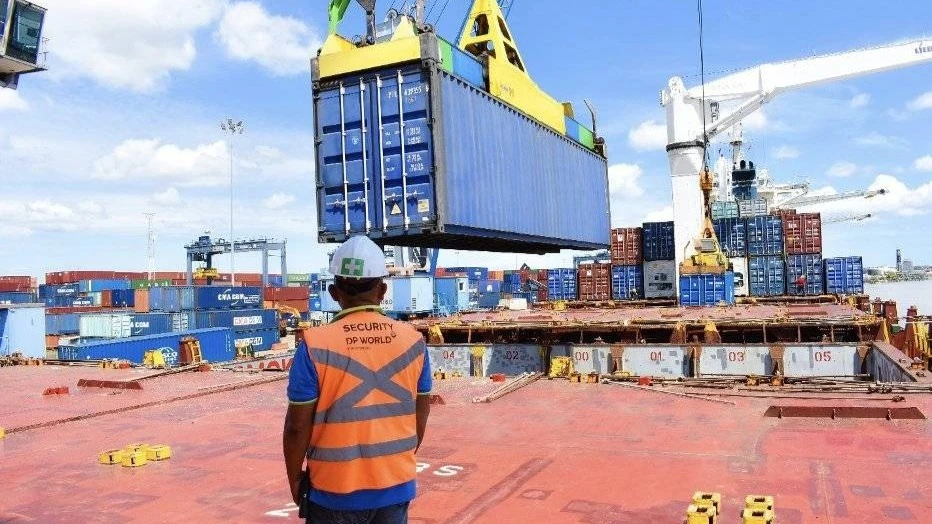How LCL shipping fuels a range of business growth

THE global trade industry involves the movement of goods, services, and capital across borders and involves a diverse array of participants and processes. It’s also 24/7 and can be unforgiving due to economic conditions, trade policies, tariffs, and other considerations.
Logistics is an essential part of any business, regardless of size. How companies manage their logistics can significantly impact their bottom line and growth trajectory.
One often-overlooked strategy that offers a compelling solution, particularly for small—to medium-sized enterprises (SMEs), is Less than Container Load (LCL) shipping.
By leveraging LCL, businesses can unlock a range of benefits that streamline operations, reduce costs, and ultimately allow expansion.
In today’s article, with expertise from Pallet2Ship, we will explore how businesses can best utilise LCL shipping for pallet delivery and sustainably grow their businesses.
Understanding LCL Shipping
LCL shipping is a method of freight transportation in which multiple shippers share container space for their cargo, in contrast to Full Container-load (FCL) shipping, in which a single shipper occupies the entire container.
LCL is particularly advantageous when a company’s shipment volume doesn’t fill a whole container, allowing them to pay only for the space their goods occupy.
“LCL shipping opens doors for businesses worldwide,” say experts at Pallet2Ship. “Solutions like LCL exist to make global trade accessible to smaller businesses.”
Cost Efficiency: A Game-Changer for SMEs
One of the best reasons to consider LCL shipping is its cost-effectiveness. Mordor Intelligence estimates that the less-than-container-load market will grow by 3.5% from 2024 to 2029, highlighting its continued popularity as a cost-efficient shipping solution.
By consolidating shipments with other businesses, companies can dramatically reduce their transportation costs. This financial flexibility allows SMEs to allocate resources to other growth-oriented initiatives, such as marketing, product development, or talent acquisition.
Enhanced Flexibility and Inventory Management
LCL shipping provides businesses with heightened flexibility in their inventory management. Businesses do not need to wait to accumulate enough goods to fill an entire container. Instead, they can ship manageable consignments more frequently, aligning with their operations.
This approach minimises the need for extensive warehousing, reduces inventory carrying costs, and allows for quicker responses to market demands.
Global Reach and Market Expansion
LCL shipping opens doors to international markets that might otherwise be inaccessible due to high shipping costs. With LCL, businesses can tap into a vast network of global destinations, reaching new customers and expanding their market presence.
This is especially beneficial for SMEs looking to diversify their revenue streams and reduce dependence on a single market.
Partnering for LCL Success
Navigating the complexities of LCL shipping requires expertise and industry knowledge, so it is essential to partner with a shipping handler who excels in these fields like Pallet2Ship.
Environmental Considerations and Sustainability
In an era of growing environmental consciousness, the cargo shipping industry is reducing greenhouse gas emissions. LCL shipping offers an additional advantage: a smaller carbon footprint per business.
By consolidating cargo, LCL shipping reduces the number of containers needed for transportation, leading to fewer trips and greenhouse gas emissions.
This approach to more efficient shipping aligns with the increasing demand for sustainable business practices. It is an eco-conscious benefit that will be continuously explored and developed in the global market.
Customisable Solutions for Unique Needs
LCL shipping isn’t a one-size-fits-all solution; services should always be tailored to each customer’s requirements.
Whether a business needs assistance with hazardous materials, temperature-sensitive goods, or oversized cargo, depending on your freight forwarder’s expertise and resources is essential. They can handle it professionally and navigate the complex shipping challenges for you.
A personalised approach to pallet shipping ensures businesses receive the most efficient and cost-effective solutions for their unique needs.
Integrating LCL into Your Business Strategy
Incorporating LCL shipping into your business strategy can be a transformative decision. By partnering with reputable providers, companies can leverage the power of LCL to optimise their supply chains, expand their market reach, and ultimately drive growth.
Whether you’re a seasoned exporter or a first-time shipper, LCL shipping offers a flexible, cost-effective, and sustainable approach to logistics that can unlock new opportunities for your business.
Final Thoughts
LCL shipping is a strategic tool that empowers businesses to optimise their supply chains, reduce costs, and unlock growth potential.
By embracing LCL, companies can gain a competitive edge in the global marketplace, reach new customers, expand their product lines, and achieve their business objectives.
Understanding the advantages and disadvantages of LCL can help businesses make informed decisions about their shipping strategies. For example, LCL does come with trade-offs, such as longer transit times and the potential for additional handling.
Top Headlines
© 2026 IPPMEDIA.COM. ALL RIGHTS RESERVED

























